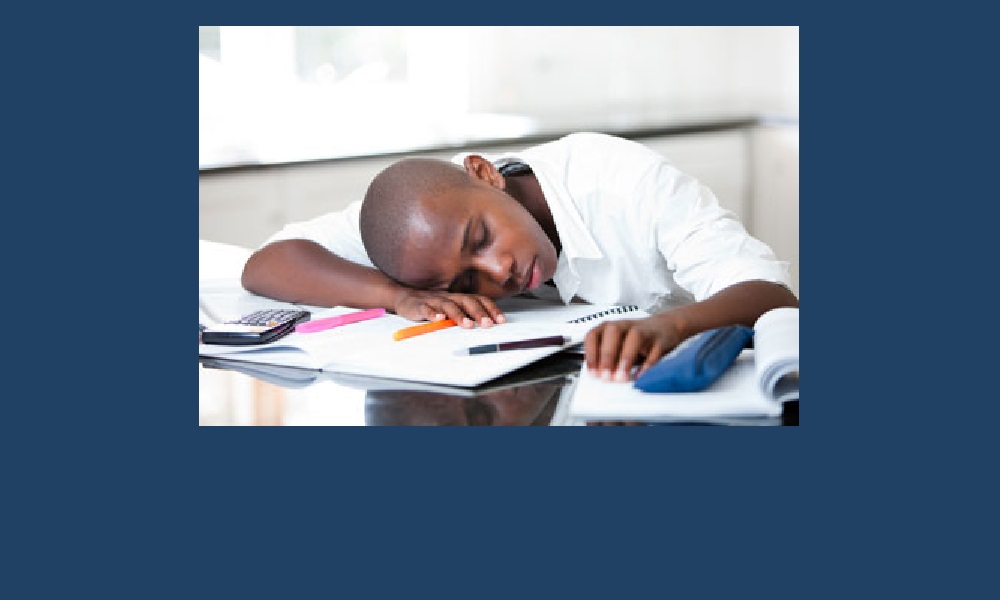
 Today we know that short sleep durations and sleepless nights have reached epidemic proportions in the United States. The Centers for Disease Control and Prevention (CDC) reports that more than a third of U.S. adults do not sleep as long as recommended, and childhood sleep deprivation is a common issue.
Today we know that short sleep durations and sleepless nights have reached epidemic proportions in the United States. The Centers for Disease Control and Prevention (CDC) reports that more than a third of U.S. adults do not sleep as long as recommended, and childhood sleep deprivation is a common issue.
Youth of color are disproportionately impacted by inadequate sleep, according to the American Academy of Sleep Medicine (AASM). Compared to their European-American counterpart, African-American youth have shorter sleep duration and more fragmented sleep. As helping professionals working with youth, understanding the influence of sleep deprivation on performance and mental health brings an added dimension to the complex issues facing youth of color and those living in depressed socioeconomic conditions.
The necessity for healthy sleep is integral to adolescent neurodevelopment, including the cortical maturation required for higher cognitive functioning, better physical health and better attention and emotional and cognitive regulation. While sleep requirements may differ among individuals, the importance of sleep for sufficient daily functioning is not arguable.
Recommendations from the AASM define healthy sleep as eight to 12 hours per 24 hours on a regular basis for youth ages 6 to 12, and eight to 10 hours per 24 hours for those ages 13 to 18. In essence, sleep is necessary for survival. Brain development and overall health are negatively impacted when youth live in environments that incite chronic stress, setting up lifelong patterns of illness and poor health behaviors. Sleep disturbances add to this already toxic recipe, influencing the onset of risk behaviors and impeding healthy development.
Sleep-deprived youth are vulnerable to a wide range of poor health and social outcomes that impact academic performance and school attendance, as well as their experiences with anxiety, depression, hyperactivity, suicide and obesity. The waking consequences of sleep deprivation are directly associated with motivation, abilities, performance and emotional regulation of children and adolescents.
There is evidence linking sleep disruption to aggressive and impulsive behavior vis-à-vis affective, cognitive and response-control pathways. Basically, poor sleep patterns are connected to problem behaviors and emotional dysregulation. From a clinical perspective, we are missing an important factor in the diagnosis of behavioral health issues when failing to explore sleep patterns and related deprivation experienced by adolescents under our care. Furthermore, in order to understand the health-related functioning of American youth, perhaps it is important to examine the social and environmental variables associated with sleepiness and fatigue.
The trauma of living in highly stressed and disadvantaged communities may place youth of color at a greater risk for sleep disturbance and factors associated with sleepiness, such as aggressive behavior, quick-temperedness and worry. For example, in a cohort of 3- to 9-year-old African-American youth residing on the South Side of Chicago, researchers found an interrelationship between sleepiness and maladaptive behavioral functioning.
Socioeconomic factors influence the quality and amount of sleep experienced by children and adolescents. African-American children and those from lower socioeconomic households are at a greater risk for sleep disturbances. Researchers found in 2010 that children with lower socioeconomic status had more disturbed sleep patterns than those in higher socioeconomic groups. Race and socioeconomic status are moderators in relation to sleep and behavioral adjustment.
In addition to the ecological factors related to sleep deprivation among African-American youth, the typical school day for children and teenagers is problematic due to early start times and late bedtimes. As adolescents age, sleep duration decreases from 8.4 hours for sixth graders to a disturbing 6.9 hours for 12th graders. Lack of sleep influences effort, making tasks related to cognitive, emotional, physical output more difficult. This is of particular consequence to academic performance.
The available evidence on sleep deprivation and social functioning among youth of color is limited. A direct relationship between sleep deprivation and aggressive behavior among youth has not been empirically substantiated. However, we do know that sleep affects our ability to relax, self-regulate and cope with stress. Given the prevalence of sleep deprivation, it is important that helping professionals consider how sleep disturbance can adversely impact the social, mental and emotional functioning of youth.
The following are suggestions for helping professionals to consider in order to promote healthy sleep.
When assessing or interviewing youth and families, helping professionals should inquire about sleep duration, sleep quality and symptoms such as night terrors. Further assessment of sleep may help us learn more about the contributions of healthy sleep, sleep loss and sleep displacement during developmental processes across the lifespan. Additionally, it is imperative that helping professionals assist parents in understanding the intersection of sleep and health. The complex connection among sleep, behavioral problems, familial and community stress and long-term chronic disease cannot be understated, but is an area few professionals readily address when educating families.
Recognition of risk and protective factors connected to sleep can help us treat youth and families more effectively. We can identify sleep-vulnerable individuals and families and propose strategies for self-care with specific emphasis on sleep hygiene. We can also note the strengths and resources of youth and families that attain healthy sleep and use this information to educate others and ourselves. Cellphones, video games and laptops are connected to less sleep. Therefore, structure around sleep and rules limiting technology use before bedtime are necessary.
No helping professional can operate in a vacuum. Interdisciplinary collaboration among helping professionals such as teachers, social workers and pediatricians will ultimately help decrease the high rates of youth sleep deprivation. This collaboration may embrace the creation of open, constructive communication related to practice, research and policy; the formation of mutual or shared goals to support youth and families; and increased referrals and partnerships.
In addition to prescribing exercise, sunlight and better eating habits to support good sleep, we should advocate for social conditions that foster healthy sleep such as later school start times and reduced homework burden to insure optimal bedtime rituals. There is a major discrepancy between youth’s internal circadian biological clock and school start times, and this discrepancy contributes to sleep deprivation.
It is time for us to weigh the pros and the cons of early school start times on the health of our children. To better inform practice, participation in evidence-based research related to sleep and behavior among youth of color and those in disadvantaged environments is imperative. We must fully evaluate the impact of sleep on optimal health functioning and specifically attune ourselves to the culturally relevant messaging regarding the health habits and needs of youth of color and their family systems.
V. Nikki Jones, DSW, LCSW, is a faculty member in the Department of Social Work at Middle Tennessee State University, with research interest in culturally competent practice. She can be reached at Nikki.Jones@mtsu.edu.
Vickie Harden, Ph.D., LAPSW, is a faculty member in the Department of Social Work at Middle Tennessee State University. She can be reached at Vickie.Harden@mtsu.edu.
































